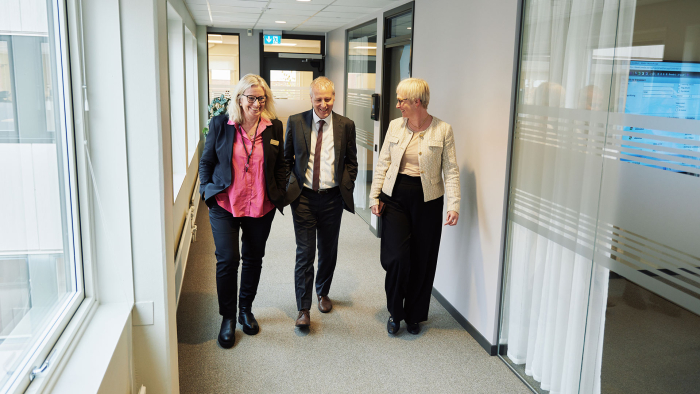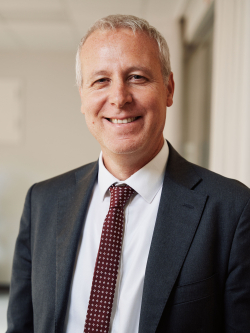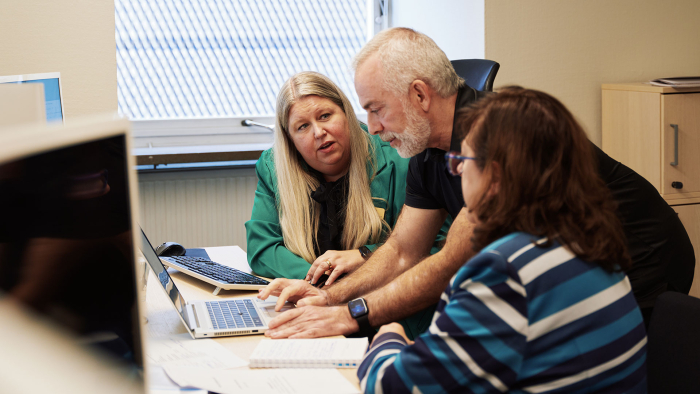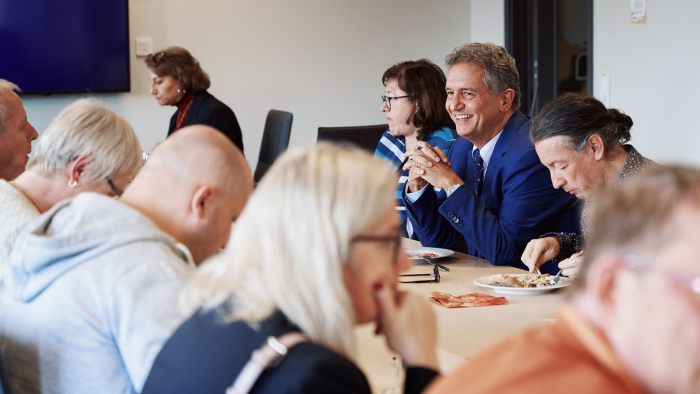The team from the European Cooperation for Accreditation (EA) is in full swing with its task of evaluating Swedac in the periodic peer evaluation. Team leader is Emanuele Riva, who works at Accredia, Swedac’s counterpart in Italy, and is chairman of the International Accreditation Forum (IAF).
”Above all, this is an opportunity to have meaningful discussions and talk about different types of solutions,” says Emanuele Riva.

He is accompanied by eleven colleagues from various European accreditation bodies, all with different expertise and with a specific task to fulfil. During the week, Swedac’s operations are scrutinised. The evaluation involves both how the administrative work is carried out in the office and how assessments and inspections are done outside the office. Peer evaluations take place every four years and are linked to the EA organisation and to EU Regulation 765/2008. This stipulates that each Member State must have a non-profit accreditation body and that it must be continuously evaluated by other accreditation bodies within the Union.
Emanuele Riva is in charge in Borås during the week and gathers the team every evening to go over and talk about the day’s activities.

”On one level, this is an organisational and logistical feat. We need to work very intensively to get everything done in just one working week. We keep all the notes in a common document online, so that we don’t have too much workload at the end of the week.”
Different solutions possible
Swedac’s employees are also pulling their weight to make sure everything runs smoothly. At the same time, day-to-day operations are taking place as they normally do, with the idea being for the EA team to witness “business as usual”.
“It’s very exciting. I have both reviewed and been reviewed in peer evaluations many times before, and it strikes me that I learn something every time,” says Emanuele Riva.
He cites as an example a peer evaluation he attended some years ago. The methods and interpretation of a certain standard surprised him, and he made notes of it.
”However, what may be perceived as a deviation is not necessarily against the rules. On the contrary, it may be that it is absolutely right for that particular country. In this case, we discussed the methodology and I understood their reasoning and how they interpreted the standard. Everyone was satisfied in the end.”

Requires a lot – gives a lot
Being part of an evaluation team is outside the scope of the usual tasks of the respective accreditation body. Emanuele Riva and the team members have prepared carefully before the visit.
“It’s intense but fun. I see it as skills development. It’s a real honour to gain insights and get the opportunity to have an exchanage with colleagues in other countries. The idea is that we all work together to facilitate trade and goods within the Union, and the language of accreditation through standards is fantastic,” he says.
Compilation and decisions
Once all the documentation has been collected, discussions have taken place and perhaps clarifications have been noted, the team goes home again. Now a period awaits when everything will be compiled and formally reported to Swedac. After Swedac has addressed any discrepancies and answered outstanding questions, a final decision is made within EA regarding Swedac’s MLA status (MLA stands for Multilateral Agreement and is a multilateral agreement).
“Nobody is looking to single anyone out, this is – mind you – a peer evaluation. Above all, it is an opportunity to have meaningful discussions and talk about different types of solutions,” concludes Emanuele Riva.

Peer evaluation – step by step
- Each member of EA undertakes to undergo a peer evaluation every four years. Peer evaluation is an integral part of the multilateral agreements that regulate how accreditation is managed in Europe and, by extension, globally.
- An independent team of around 10-12 people from other Member States assesses the Member on site for about a week. Everything from management systems, business plans to supervisory practices and compliance with regulations is assessed.
- At the end of the week, a final meeting is organised to discuss or clarify any uncertainties noted by the team.
- The evaluation team then sends a report to Swedac, which has the chance to address any non-conformities.
- The report then goes to EA’s Multilateral Agreement Council (MAC), which appoints a task force, which looks at the whole process, evaluates and presents their report to the MAC, which then decides on Swedac’s continued MLA status.
Facts MLA
- MLA stands for Multilateral Agreement and is a multilateral agreement. EA has MLAs for its members and the global organisations IAF and ILAC have their counterparts at an international level.
- MLAs are signed for different standards and a member is approved by the EA and receives MLA status. Upon approval, a so-called signatory agreement is signed.
- The agreements mean that bodies accredited by Swedac can also use the quality mark outside the country’s borders.
Read more about EA MLA here: The EA MLA
Read more about the IAF MLA here: About IAF MLA
Read more about ILAC MRA here: ILAC MRA and Signatories
